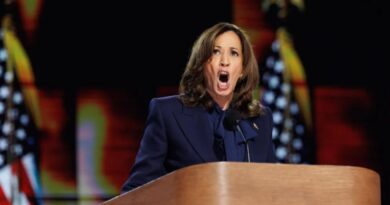United as Americans: The Courage and Sacrifice of D-Day

It is surprising to realize that we have already reached the 80th anniversary of D-Day for those who understand its significant importance.
Unfortunately, many Americans today lack knowledge of the historic hours that changed the course of history and humanity for the better.
D-Day has always held a special place in my heart.
My father was a World War II veteran, and I had the privilege of working in the Reagan White House during the president’s visit to Normandy to deliver the famous “Boys of Pointe du Hoc” speech.
Later, I served as the director of communications for former senator and WWII hero Bob Dole when he co-chaired the effort to construct the national World War II Memorial in Washington, DC.
In Dole’s office, there was a replica of the handwritten note drafted by Gen. Dwight D. Eisenhower in case the invasion failed: “The troops, the air, and the Navy did all that Bravery and devotion to duty could do,” he wrote.
“If any blame or fault attaches to the attempt, it is mine alone.”
This sense of accountability and grace is truly admirable.
The bravery and sacrifice of what is known as “The Greatest Generation” is disappearing along with them.
With their passing, the divisive and toxic politics of today seem to drive us further apart with each day that goes by.
Nevertheless, it doesn’t have to be this way.
The lessons of D-Day will always unite those with open minds and open hearts.
I can personally attest to this unity.
When Sen. Dole and his co-chairman Fred Smith sought private funds for the WWII Memorial, they approached Hollywood executives, whose studios had collectively earned over $1 billion from WWII films, seeking support.
Most conversations went like this:
Dole: “We’re trying to build a memorial for our World War II vets using private funds.
Unfortunately, we are losing over one thousand WWII vets per day, so any help would be greatly appreciated.”
Hollywood exec: “That sounds nice, but it doesn’t align with our business plans, so we must decline.”
Dole: “Really? The war didn’t align with my business plans, nor the plans of the 400,000 Americans killed while defending our way of life — including your ability to make movies and huge profits. Have a nice day.”
After several rejections, Dole understandably became disheartened by Hollywood.
But in 2000, when we needed funds for the memorial groundbreaking, we made one last attempt.
At that time, Steven Spielberg had just directed the successful film “Saving Private Ryan,” which artfully depicted the bravery, sacrifice, and horror of D-Day.
I believed that he might be interested in supporting our cause.
I reached out to Andy Spahn, Spielberg’s political director, and explained our urgent need for funds for the groundbreaking on Nov. 11, Veterans Day.
After a brief moment, Spahn introduced Spielberg to the call.
After recovering from the shock, I presented our case: “Mr. Spielberg, if we could just secure a fraction of the required amount. . . .”
This time, Spielberg interrupted me. “Doug, hold on. How much do you need in total for the groundbreaking?”
“Six hundred and fifteen thousand dollars.”
“No problem,” Spielberg replied.
“We will send you the check via FedEx tomorrow.”
And he did.
Spielberg, a modest and private individual, should be recognized for his generosity and support of the WWII Memorial.
Following this act of kindness, Tom Hanks, the star of “Saving Private Ryan,” volunteered to be the spokesperson for the memorial.
Although Steven Spielberg and Tom Hanks did not always see eye to eye with Sen. Dole or myself politically, we all agreed that the courage, bravery, and sacrifice of the “Boys of Pointe du Hoc” united us as Americans.
As we reflect on the 80th anniversary of D-Day, this is the lesson that will always resonate with me.
Douglas MacKinnon is a former White House and Pentagon official and author of “The 56 – Liberty Lessons From Those Who Risked All to Sign The Declaration of Independence.”



